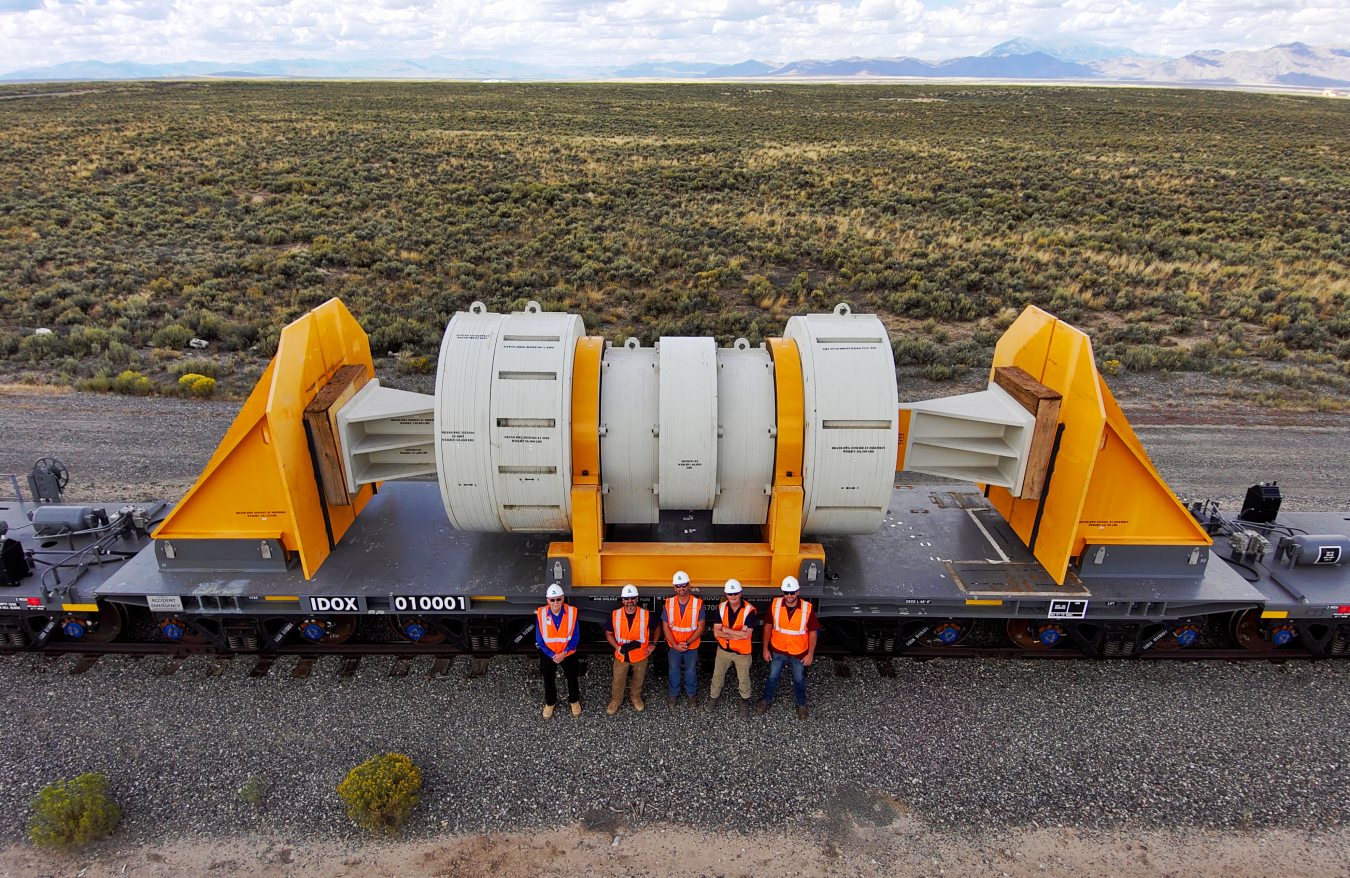The U.S. Department of Energy (DOE) wrapped up final testing on the Atlas railcar. The new specialized railcar will be used to safely and securely transport the nation’s commercial spent nuclear fuel and high-level radioactive waste.
September 21, 2023
The U.S. Department of Energy (DOE) recently completed a 1,600-mile round-trip journey from Colorado to Idaho to wrap up final testing on the Atlas railcar.
The new specialized railcar will be used to safely and securely transport the nation’s commercial spent nuclear fuel and high-level radioactive waste.
Atlas could be cleared for operational use before the end of the year.
Getting “On Track”
Atlas is a 12-axle railcar designed specifically to transport large containers of spent nuclear fuel and high-level radioactive waste and meets the highest safety standards set by the Association of American Railroads (AAR).
The final test simulated a full-scale shipment of spent nuclear fuel, carrying steel test weights instead of radioactive cargo.
The railcar was loaded to its maximum weight with a 480,000-pound test load designed to simulate the heaviest transport container certified by the U.S. Nuclear Regulatory Commission.
The train departed from Pueblo, Colorado, on September 5 and completed a successful four-day round-trip journey to Scoville, Idaho, collecting valuable data along the way. Atlas was accompanied by a rail escort vehicle (REV), two buffer railcars, and two Union Pacific Railroad locomotives. The entire trip logged more than 1,680 total miles.
“This milestone underscores the Department’s dedication to advancing the safe and secure transportation of radioactive materials, including spent nuclear fuel,” said Dr. Patrick R. Schwab, DOE’s Atlas railcar project manager. “Through the successful completion of the test and the Atlas railcar project, we have delivered a capability for the Department to effectively transport spent nuclear fuel to future DOE storage and disposal facilities, filling a key role for successful operation of a nuclear waste management system.”

The four fabricated prototype railcars (Atlas, two buffer railcars, and REV) are expected to be ready for operational use as soon as the final testing data can be analyzed and documented, and conditional approval is granted by the AAR Equipment Engineering Committee.
The overall cost of the 10-year Atlas railcar project was approximately $33 million to develop and test the Atlas, buffer, and REV railcars.
The REV was developed in partnership with the Naval Nuclear Propulsion Program to replace its aging fleet of escort vehicles. The collaboration helped reduce the overall cost of the Atlas project significantly.
Going forward, Atlas will undergo some additional testing and travel to DOE’s 2024 National Transportation Stakeholders Forum Annual Meeting in Denver, CO.
DOE plans to use Atlas and other railcars to support emergency responder training and informational roadshows prior to commencing shipments of spent nuclear fuel to a federal consolidated interim storage facility.
The Department is currently working on an effort to site one or more federal consolidated interim storage facilities for storing spent nuclear fuel using a consent-based siting process.

